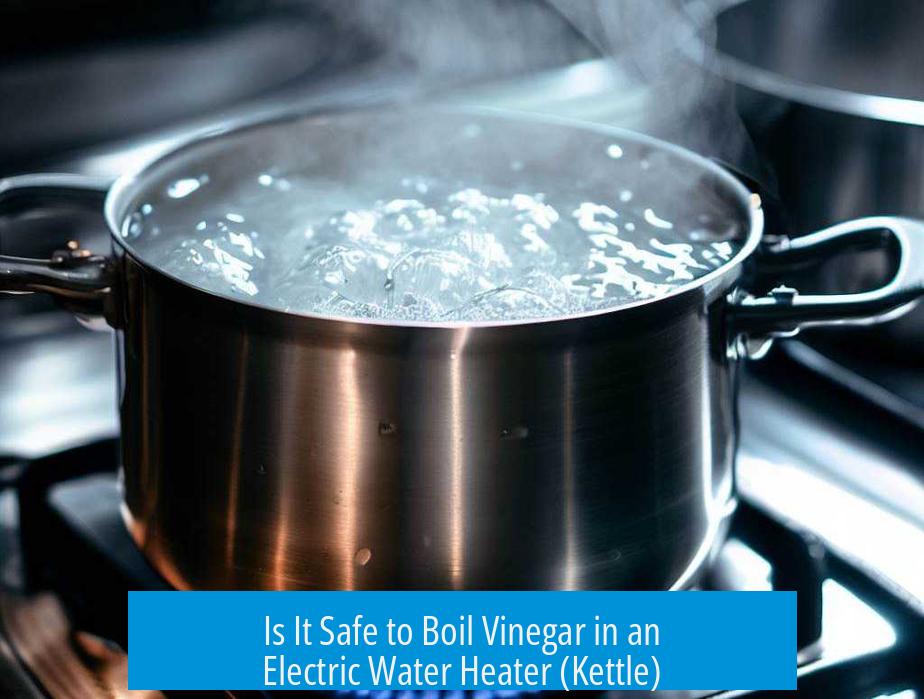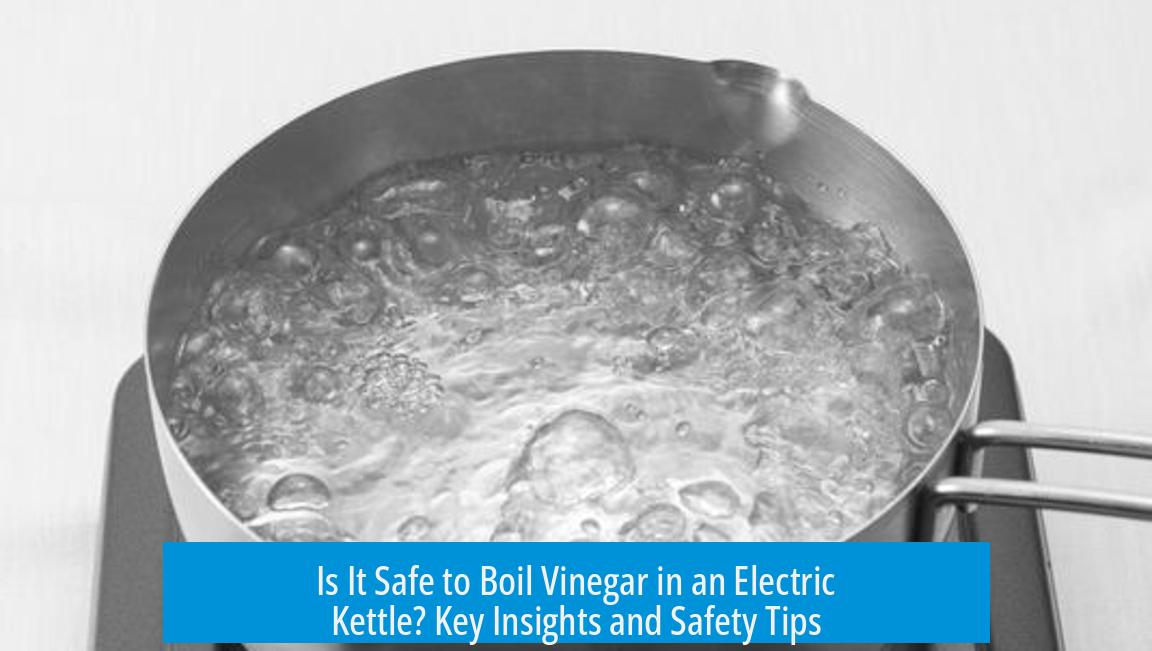Is It Safe to Boil Vinegar in an Electric Water Heater (Kettle)?

Boiling vinegar in an electric kettle is generally safe if done with caution. It releases acetic acid vapors that may irritate the respiratory system and eyes, but these fumes are not poisonous. Proper ventilation and awareness of personal sensitivity are essential.
Understanding Acetic Acid in Vinegar
Vinegar contains acetic acid, a mild corrosive agent. When heated or boiled, this acid produces vapors. These vapors can irritate mucous membranes but do not pose a toxic risk under normal conditions.
What Happens When You Boil Vinegar?
- Boiling causes water in the vinegar to evaporate first.
- This increases the concentration of acetic acid vapors in the air above the kettle.
- Higher vapor concentration can cause breathing discomfort and eye irritation.
Repeated or prolonged inhalation of these fumes should be avoided to prevent respiratory discomfort.
Practical Applications and Safety Tips
Using vinegar to clean kettles and coffee makers is a common practice. It effectively removes mineral deposits that are difficult to eliminate by other means.
- Boiling a dilute vinegar solution briefly is unlikely to damage the kettle.
- Users often report mild irritation but no serious health effects.
- Ensure good airflow by opening windows or using an exhaust fan during and after boiling.
Listening to Your Body
Individual tolerance to acetic acid fumes varies. If irritation occurs, stop boiling vinegar immediately and ventilate the space. Bodies typically signal when exposure is uncomfortable, so heed these cues.
Summary of Key Points
- Vinegar boiling releases acetic acid vapors that can irritate eyes and airways.
- These vapors are not toxic but should be inhaled minimally.
- Boiling vinegar is effective for cleaning and generally safe with proper ventilation.
- Users should pay attention to their comfort and air out the room afterward.
Is it safe to boil plain vinegar in an electric kettle?
Boiling vinegar releases acetic acid vapors which can irritate eyes and lungs. The vapors are not poisonous, but their concentration increases as water evaporates. Proper ventilation is recommended during and after boiling.
Why do some people use vinegar in appliances like coffee makers?
Vinegar helps remove mineral deposits that build up inside appliances. This cleaning method is common and usually does not cause damage. The fumes can be irritating but are generally considered safe with good airflow.
Can boiling vinegar damage the heating element in an electric kettle?
There is no clear evidence that boiling vinegar alone damages the heating element. However, the concentrated acetic acid vapor might cause corrosion over long-term repeated use, so occasional cleaning with diluted vinegar is best.
What precautions should I take if I boil vinegar in an electric kettle?
Ensure the room is well-ventilated. Open a window or turn on a fan to reduce vapor concentration. If you feel eye or lung irritation, stop and air out the kettle and room before use.
How can I tell if boiling vinegar fumes are affecting me?
Your body will signal discomfort through eye watering, coughing, or throat irritation. If you notice these symptoms, ventilate the area immediately. People’s sensitivity to fumes varies, so trust your body’s response.





Leave a Comment